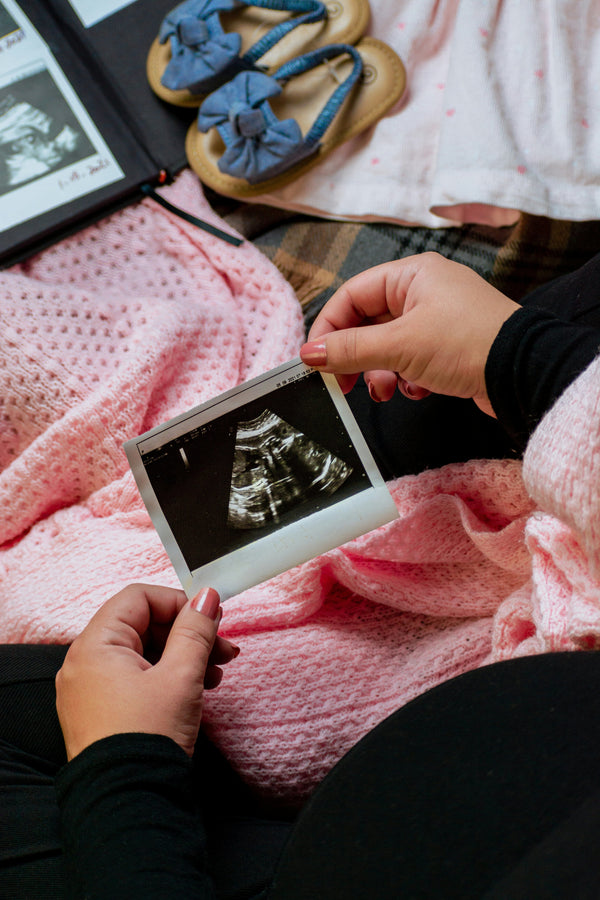Article
1st Trimester Essentials
Posted on
The first trimester of pregnancy is a time of rapid development and transformation, both for your baby and your body. While it can be an exciting phase, it’s also one filled with questions, especially around what to eat in 1st trimester, which vitamins during pregnancy are essential, and what lifestyle choices will best support a healthy pregnancy.
In this guide, we cover the first trimester best foods, trusted supplement options like the best folate supplement, and answers to common concerns including the use of omega 3 with pregnancy and magnesium in pregnancy.
What to Eat in 1st Trimester
Your baby’s organs are forming in the first 12 weeks, so good nutrition is essential. If you're wondering first trimester what to eat, focus on a balance of protein, complex carbohydrates, healthy fats, and essential micronutrients.
- Leafy greens (spinach, kale) for folate
- Oily fish (like salmon or sardines) for omega-3 fatty acids
- Wholegrains for energy and fibre
- Eggs for choline and protein
- Dairy or fortified alternatives for calcium and iodine

Need more detailed advice? The NHS pregnancy diet guide is a trusted starting point.
Vitamins During Pregnancy
Even the best diet can benefit from extra nutritional support. Taking the right vitamins during pregnancy is one of the simplest ways to support your baby’s development, especially if nausea or food aversions limit your intake.
- Folate (or folic acid) – critical for neural tube development
- Vitamin D – supports immune and bone health
- Vitamin B12 – essential if you’re vegetarian or vegan
- Iron – to prevent anaemia as blood volume increases
- Iodine – supports healthy thyroid function
What Is the Best Folate Supplement?
We recommend using a bioavailable form of folate such as Quatrefolic® or methylfolate, especially if you have an MTHFR gene variant. These are easier for the body to absorb and utilise than synthetic folic acid. More on the importance of folate here.
See our recommended best folate supplement for conception and early pregnancy.
For those looking for a comprehensive multivitamin for the first trimester including a the recommended intake of folate, we recommend Zita West Vital Essence 1, specifically formulated to support both you and your baby during the 1st trimester of pregnancy, addressing concerns such as reducing tiredness and fatigue while promoting healthy bone growth.
Omega 3 With Pregnancy: Why It Matters
Omega 3 with pregnancy plays a vital role in the development of your baby’s brain, eyes, and nervous system. It may also reduce the risk of early preterm birth and support your mood during and after pregnancy.
If you don’t eat oily fish at least twice a week, consider an omega-3 supplement with both DHA and EPA, derived from fish or algae oil.
The Royal College of Obstetricians and Gynaecologists advises pregnant women on safe omega-3 intake and supplementation.
Magnesium in Pregnancy: The Quiet Her
Magnesium in pregnancy can help with muscle relaxation, sleep, and cramping. It may also support healthy blood pressure and reduce the risk of pregnancy complications such as pre-eclampsia.
Is Magnesium Safe for Pregnancy?
Yes, when taken at the appropriate dose. Most prenatal vitamins contain a safe level of magnesium, and additional forms such as magnesium glycinate or topical magnesium oil are often used to address sleep and stress in early pregnancy.
We recommend looking for a bioavailable source of magnesium for optimal absorption. Zita West Magnesium is a marine-derived form harvested from the pristine waters of the Irish Sea. Each serving provides a high dose of magnesium along with naturally occurring trace minerals, helping to ensure greater absorption than magnesium alone.
Magnesium is also important for hormonal balance and the body's stress response, two key areas of support during early pregnancy. It’s a quiet but powerful ally, not just for energy and sleep, but for your overall wellbeing as your pregnancy progresses.
Note: Always consult your midwife or GP before starting a new supplement during pregnancy.
Other First Trimester Lifestyle Tips
- Get plenty of rest – fatigue is common in the first trimester
- Stay hydrated – especially if you're experiencing nausea
- Limit caffeine – aim for less than 200mg a day
- Consider a pregnancy-safe exercise routine – like walking or prenatal yoga
- Start journaling or mindfulness practices to reduce anxiety
FAQs: First Trimester Essentials
What are the best foods to eat in the first trimester?
Focus on whole foods like leafy greens, eggs, fish, fruit, and whole grains. These support your baby's organ development and your energy levels.
Do I need to take supplements in early pregnancy?
Yes. At minimum, folate, vitamin D, and omega-3 are highly recommended. Many women also benefit from magnesium and iron.
Is magnesium safe for pregnancy?
Yes, magnesium is considered safe when taken in moderate amounts. Topical forms or magnesium glycinate are often used to ease sleep and stress symptoms.
What’s the best folate supplement?
Look for methylated forms like methylfolate or Quatrefolic®, which are more easily absorbed and effective than synthetic folic acid.
Can I still get nutrients if I’m struggling with nausea?
Yes, try smoothies, fortified drinks, or prenatal vitamins. Small, frequent meals with high-nutrient density can also help.
Further reading
-

Is this normal in trimester 2?
Pregnancy can feel like a constant swirl of questions and new experiences. The second trimester is often called the “honeymoon... -

Myths About Early Pregnancy Safety
Trigger Warning: This post discusses early pregnancy, including topics such as miscarriage and common symptoms. The first twelve weeks of...



